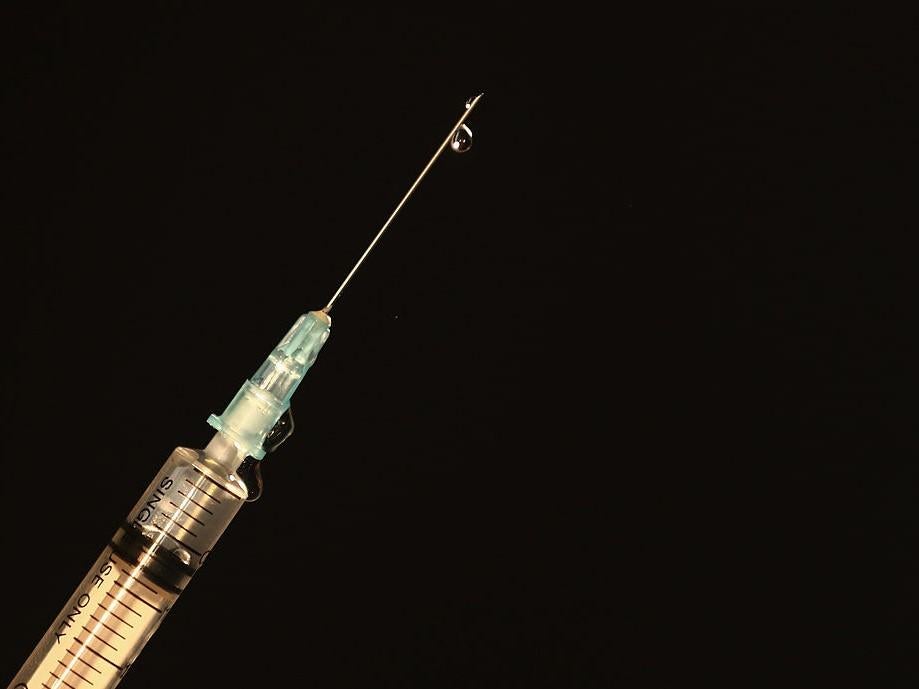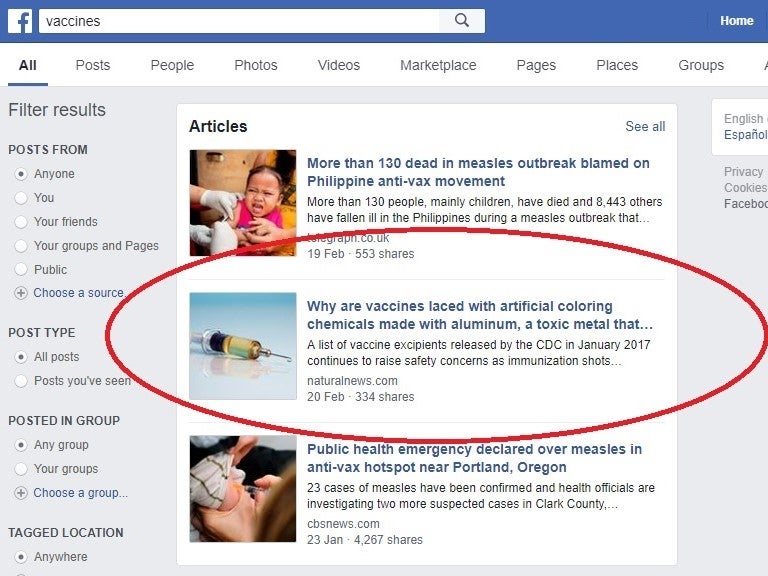Facebook tackles anti-vax conspiracy theories fueling measles outbreak
'If these vaccine hoaxes appear on Facebook, we will take action against them,' company says

Facebook is cracking down on false anti-vaccine content on its platform following a spike in vaccine-preventable diseases around the world.
Disinformation campaigns from the controversial anti-vax movement have plagued social media platforms in recent years, fuelled by the misguided belief in scientifically disproven claims that vaccinations are harmful and can cause autism.
Facebook has been repeatedly accused of helping to spread those myths, as well as other disinformation.
The issue has become so severe that diseases like measles are making a comeback in countries like the US, where it had been almost eliminated. Health officials in Washington State declared a public health emergency after an outbreak of the disease.
Facebook said on Thursday it would reduce the ranking of groups and pages that spread misinformation about vaccinations in its News Feed and Search features, while also rejecting ads spreading such information.
In a blog post outlining the measures the social network would take, Facebook's head of Global Policy Monika Bickert said the company is "fully committed" to combatting vaccine misinformation.
"If these vaccine hoaxes appear on Facebook, we will take action against them," she wrote.
"We are exploring ways to give people more accurate information from expert organisations about vaccines at the top of results for related searches, on Pages discussing the topic, and on invitations to join groups about the topic."
The move comes after representative Adam Schiff wrote letters to Facebook and Google demanding the tech giants to take action against anti-vaccine misinformation on their platforms.
Mr Schiff wrote in the letter to Facebook CEO Mark Zuckerberg that there is "strong evidence" to suggest the resurgence of a potentially fatal disease like Measles was as a result of medically inaccurate information about vaccines spreading on Facebook and Instagram.
"Repetition of information, even if false, can often be mistaken for accuracy, and exposure to anti-vaccine content via social media may negatively shape user attitudes towards vaccination," he wrote.
"As more Americans rely on your services as their primary source of information, it is vital that you take that responsibility with the seriousness it requires, and nowhere more so than in matters of public health and children's health."

Other platforms to have taken action against anti-vaccine propaganda include Pinterest, which last month updated its search policy in an effort to stifle the spread of disinformation campaigns.
Google has also stated that it is working to restrict the spread of such content, using similar information panels to the ones proposed by Ms Bickert at the top of search results.
Join our commenting forum
Join thought-provoking conversations, follow other Independent readers and see their replies
Comments
Bookmark popover
Removed from bookmarks